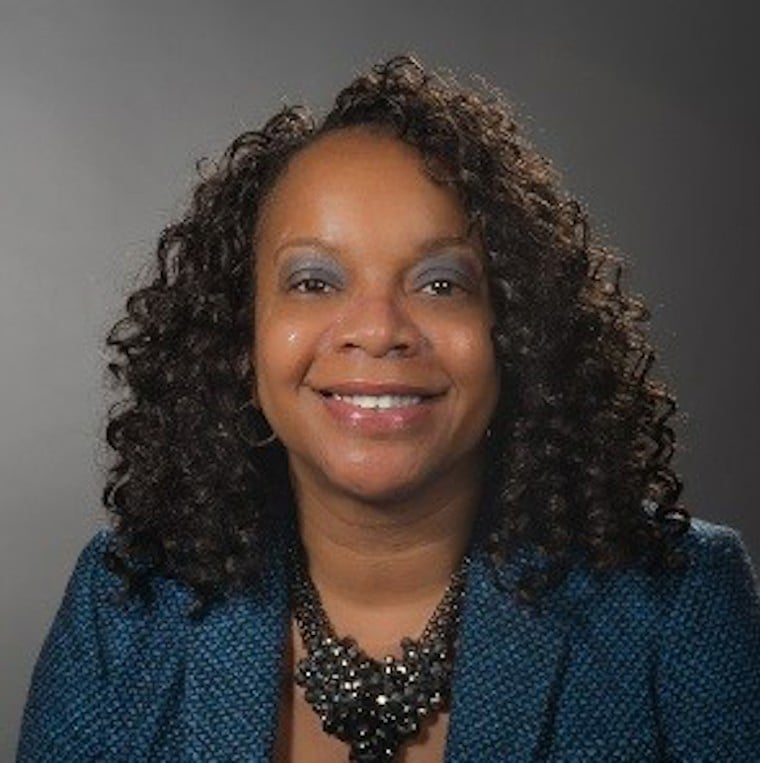
This interview is one in a series of interviews with recipients of the 2022 ACGME Awards. The awardees join an outstanding group of previous honorees whose work and contributions to graduate medical education (GME) represent the best in the field. They will be honored at the ACGME Annual Educational Conference, taking place virtually March 30-April 1, 2022.
2022 GME Institutional Coordinator Award Venice VanHuse, MPA, works as an institutional coordinator at Northwell Health/Zucker School of Medicine at Hofstra.
ACGME: How did you become involved in academic medicine?
Venice VanHuse: In my first job out of college, I served as secretary to the Chairman of Cardiology. Although I had limited interactions with the cardiology fellows, these interactions piqued my interest in graduate medical education (GME). After obtaining my master’s degree in public administration, I began my search for a more rewarding role and that’s when I started my journey in academic medicine, first as a pediatric residency coordinator and then as institutional coordinator.
ACGME: What does this award mean to you?
VanHuse: The ACGME Institutional Coordinator’s Award for Excellence means everything to me. It is such a great honor, and I feel that after 26 years in the field of GME, I’ve finally made it – receiving this award is the equivalent of receiving an Oscar. This is my Oscar for the hard work and dedication that I’ve put into GME – all while loving every minute of it and still learning continuously each day.
ACGME: What is the most rewarding part of being a coordinator?
VanHuse: The most rewarding part of being an institutional coordinator is working with the GME team (the DIO, associate DIOs, the program directors, the program coordinators, and the residents/fellows). When I transitioned from a program coordinator to an institutional coordinator, the piece I missed the most was the daily one-on-one interactions I had with the residents. But I also knew that I was in a much bigger role which gave me more responsibilities and the authority to assist with making positive changes, not only within one program, but across many specialties. While my role as an institutional coordinator is not in direct-patient care, I know that I’ve played an important part in catalyzing the quality control of the education and learning environment of our trainees, which in turn has enabled the organization to provide high-quality patient care. This direct line between my work and the care that is provided to patients fuels my efforts to continuously strive to improve. It is extremely rewarding to see the future generation of competent, compassionate, diverse physicians, and inspiring leaders that graduate from our institution year after year.
ACGME: What is the most challenging part of being a coordinator?
VanHuse: The most challenging part of being an institutional coordinator is achieving substantial compliance from all programs 100 percent of the time. It's also the fear of not doing enough to support our residents, fellows, and training programs, and the thought of not doing enough to support the DIO and the graduate medical education community. But maybe these are good challenges because they will always keep me on my toes.
ACGME: What advice do you have to brand-new coordinators who are just starting their careers?
VanHuse: My advice would be to first build a strong relationship with your DIO, and to clarify their goals, expectations, and mission for GME. Get to know their strengths, weaknesses, work, and leadership styles. After taking stock of these attributes paired with your own, try your best to develop a healthy and productive relationship with your DIO. Network, network, network – this is one of the things I believe has made me a successful institutional coordinator. I’ve always networked within and outside my organization and have formed strong relationships with other GME leaders across the country. Support your GME team members, lead and develop your program coordinators, be available to your program directors, and always listen to and be a champion for your residents and fellows. Take good care of yourself (mind and body). Remember the key is continuing professional development.
ACGME: Is there anything else you would like to add I haven’t asked about?
VanHuse: I appreciate this award and the ACGME’s continued recognition of the essential role institutional coordinators play in ensuring high quality graduate medical education.
Learn more about the ACGME’s GME Institutional Coordinator Excellence Award and nominate a deserving institutional coordinator for the 2023 Award – nominations are due by April 6, 2022.
